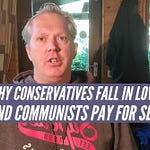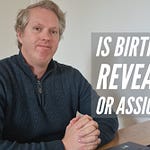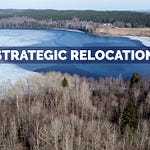Societies of equals yield only average individuals. Without adversity, the strong grow dull. Without competition, the weak win more ground than they should. What follows is a regression to the mean for all participants. And then, a limited society begins to rot.
The forest you see around me is a managed forest. Most of the trees here were planted by people. These types of forests are often divided up into square sections of trees of about the same age.
Such trees are deliberately placed at equal distances from one another. That way, each tree may be sure to take up about the same amount of resources from the soil. And every tree will collect about the same amount of sunlight as every other tree.
It is the idea of an egalitarian society applied to forestry. As a result, each tree ends up growing a trunk of about the same width and height as everyone else’s.
But there’s a downside. Trees that develop in such equalized forests ten to yield a lower quality of wood. Their wood is softer, less suitable for construction, and by far not as durable. Without a challenge, there’s simply no need to strengthen one’s core. There’s no need to achieve one’s highest potential if the conditions are gentle.
Equality means to reduce individual or group conflict so that weaker specimens may receive nearly the same chances of success as more vigorous ones. By contrast, in a natural, unspoiled forest, there is a fiercer struggle for resources. There, trees grow at uneven distances from one another, on uneven grounds, and so have to fight each other more vigorously to win access to nutrients and sunlight.
Of course, I know trees also work together, just like people do.
I’m not saying trees exist as radical individuals, each pursuing their rational self-interest. They don’t, and neither should we.
Trees may, for example, intertwine their roots to create a network for distributing resources—a society, a forest. But allowing for some level of healthy struggle, between individuals and groups, also helps root out less vigorous elements, to the benefit of the whole.
If making forests more equal makes them weaker, then why do foresters, the world around, prefer planting them? This has something to do with the economics of felling trees. If trees each have about the same height and width, it becomes a lot easier for sawmills to cut them into planks. You see, the economic benefit of making all trees equal outweighs the cost of their lower quality. That is, until you plant to build a bridge.
The same wisdom applies to people. The socialist equality cult wants to standardize people so that they, too, can be more easily exploited economically. As people’s individual potentials become less diverse, as societies minimize conflict, a complacent people become more predictable and, so, more manageable. The financial benefits of making people equal tend to outweigh the loss of their overall vigor.
Why does any of this matter? Why does it matter to abandon equality in favor of struggle? Well, a society of equals limits the potential of the vigorous to the abilities of the incompetent. It shackles the strong to the needs of the weak. Such societies soon arrive at a state of arrested development. You can either have equality or progress, but you can’t have both.
The ideal of equality wasn’t always the norm. There were times when men, less afraid of public opinion, weren’t scared of doing the necessary evil.
When, sometime during the 10th century, a famine hit Iceland, people began starving in large numbers, the strongest Viking men gathered at the Allthing, the world’s first parliament.
They discussed the matter at hand and decided it was best to go around the island, on horseback, and kill the weak, the sick, and the elderly. By ridding their island of those very people most likely to die of the famine anyway, these men helped preserve a more vigorous stock.
We would do well, then, like the old Vikings, to abandon the notion of equality altogether. If we are prepared to carry the responsibility for our own future, then we are ready to push back against international socialism.










